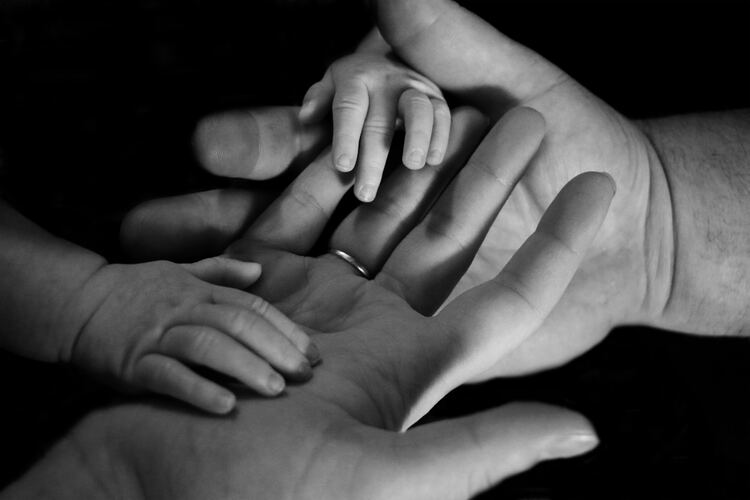As one of Asia’s visionaries in the takaful industry, we care for your needs and safeguard your future.



Before we continue to the topic of the importance of wills, it is important that we know the meaning and differences of will vs hibah vs faraid first. Many among us still lack understanding of the importance of writing a will for estate planning, even though writing a will is a recommended practice. A will is an important legal document in the planning of inheritance distribution and more. Writing a will allows you to express your intentions regarding asset distribution, special care for your dependents, contingency planning, minimising family disputes, and ultimately gives you peace of mind.
Hibah refers to the transfer of ownership of an asset from the donor (wahib) to the recipient (mawhub lahu) without any consideration (Policy Document on Hibah BNM/RH/PD 028-5). There are many benefits to making a hibah, including avoiding potential arguments among family members, relatives, and heirs. Anyone who wishes to make a hibah is encouraged to obtain confirmation from the Syariah Court, and it should be made in writing for validation. So, what is the difference between hibah and wasiat? Hibah involves giving away assets during your lifetime, whereas wasiat involves giving away assets after death. Meanwhile, Hibah Takaful is a Takaful benefit that is paid to the nominee (beneficiary) following the demise of a Takaful participant. Takaful participants have the option to nominate a family member or any individual as the recipient of Takaful Benefits, adhering to the concept of Conditional Hibah. Nomination can be made at the participation stage or during the validity of the Takaful Certificate.
Faraid, on the other hand, refers to the distribution of inheritance or estate according to Islamic law to legitimate and eligible heirs after the death of a family member. In the event you pass on without a will or hibah, all your assets, known as harta pusaka, will be distributed according to the laws of faraid and the determined shares for each eligible heir. Both wills and faraid involve the distribution of assets after death. Simply put, a will is a planned distribution of assets, while faraid is the opposite, where the assets left behind are divided according to the system of distribution in Islam.
Now, you have a brief understanding of the methods of inheritance distribution in Islam, the difference between wills, hibah, and faraid, as well as the importance of this system. In this article, we will explore the detailed functions of wills, its definition and highlighting the reasons why it is important for you to have a will.
One of the main benefits of a will is to give you the ability to engage in contingency planning. Contingency planning, in simple terms, means to prepare for unforeseen events that might occur in the future. It involves thinking ahead and coming up with backup plans so that if something goes wrong, there's a plan in place to deal with the issue. In the context of a will, contingency planning means considering what might happen if the people you want to leave your belongings to are unable to receive them.
Life is unpredictable, and it is prudent to consider potential scenarios where the intended beneficiaries might predecease the testator. A will allows you to name alternative beneficiaries or outline specific instructions for such circumstances, ensuring that your assets are distributed as intended even if the original beneficiaries are unable to inherit.
Asset distribution is another key reason why having a will is important. It allows you to decide who will be in possession of your belongings after your demise. By writing your wishes clearly in a personal will, you can make sure that the things you worked hard for are given to the people you choose. Without a will, the way your assets are divided might be decided by laws that may not match what you want or what you have had planned. Having a will gives you the power to stay in control and ensure that your loved ones are well taken care of according to your own wishes

Another important reason to have a will prepared is to take care of your family and loved ones who depend on you. This includes young children, elderly parents or family members who have special needs. With a will, you can make special plans for them. You can choose someone to be their guardian, set up a trust to manage money for their benefit, or assign certain assets to provide for their needs. This way, even after you are no longer around, you can ensure that they will continue to be taken care of. It brings peace of mind knowing that your loved ones will be looked after, and it gives you reassurance that their well-being and financial security are taken care of
Furthermore, having a will in place can help prevent arguments and disagreements among family members. When there is no clear and legally binding document, disagreements can happen about who gets what, and this can strain relationships and even lead to long and costly legal battles. By stating your wishes clearly in a will, you provide clarity and guidance. This leaves little room for confusion or disagreement among your family members. It helps everyone understand your intentions and reduces the chances of disputes. This way, your loved ones can focus on supporting each other during a difficult time and maintain harmony within the family.
Finally, one of the benefits about having a will is the peace of mind it gives you. It means you can be confident that your wishes will be followed and that your loved ones will be taken care of. This relieves any worries you might have. With a will, you stay in control even after you're gone. It ensures that your belongings are managed the way you want them to be. This brings a sense of security and comfort, knowing that everything will be handled according to your wishes. This peace of mind is not just for you but also for your loved ones, who can find comfort in knowing that their future is protected and that they will be taken care of.
In summary, a will is important as it helps you plan for unexpected situations, decide who gets your belongings, take care of your dependents and avoid family disputes. Most importantly, it gives you peace of mind knowing that your wishes will be followed and your loved ones will be taken care of. By having a well-written personal will, you can protect your assets, provide for your family, and leave a lasting legacy. You can achieve this with Great Eastern Takaful Berhad that has the plan that is best suited for your needs.
As one of Asia’s visionaries in the takaful industry, we care for your needs and safeguard your future.
Great Eastern Takaful is a name you can trust for all your takaful solutions.
Great Eastern Takaful’s visionary leaders have steered the company from strength to strength.